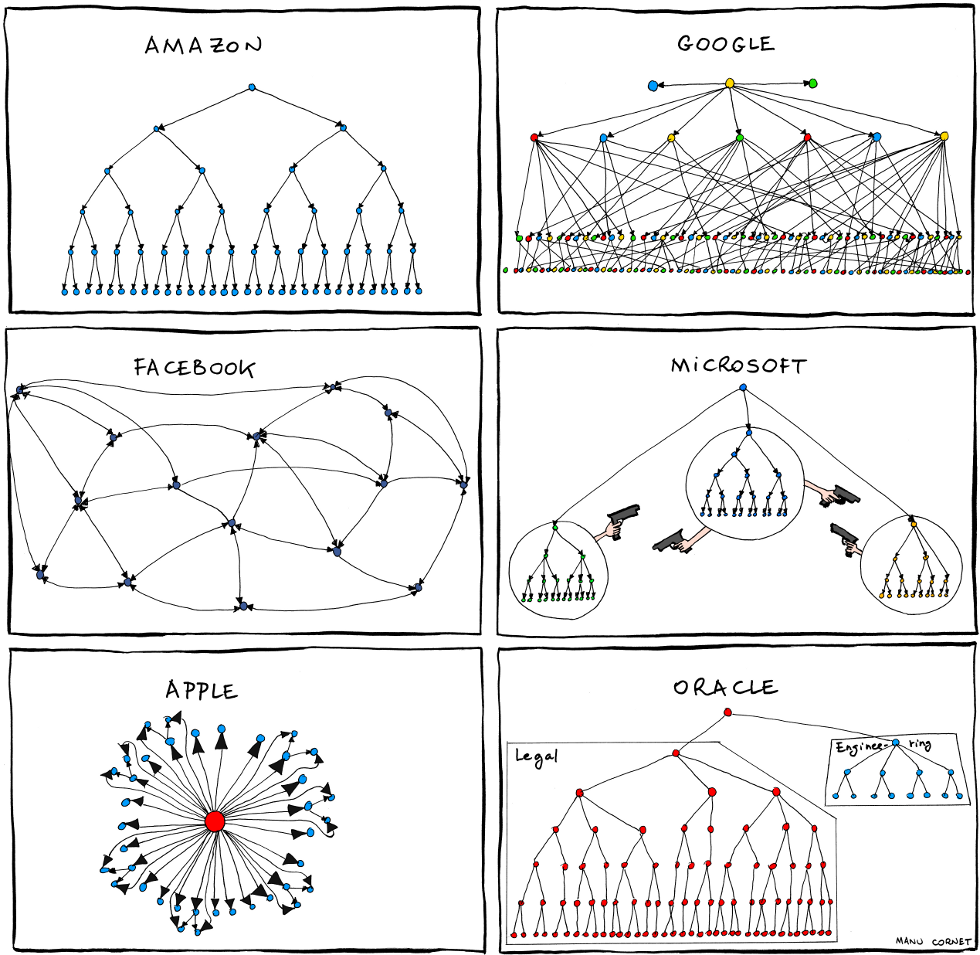Is working in Big Tech really like the movies? Do Big Tech engineers have infinite budgets and free rein? Does “10x” talent actually exist?
Over more than a decade inside Google, I was part of the myths, the hype, and the reality. In this session, we’ll separate fact from fiction - starting with the biggest myths about working in Big Tech (bring your own questions!). Then, we’ll break down what truly makes these companies thrive: people over process, smart constraints, trust over bureaucracy, and why forgiveness is more powerful than permission.
If you want to learn what actually drove the success of Big Tech - and how to apply it anywhere - this talk is for you.
HBA Series: Silicon Valley
- Apple is a product company, product first, marketing second and then someone needs to do the job
- Microsoft was a business company
- Google is an engineering company, founded by engineers, owned by engineers
We are not big tech, we are not Amazon, Google, does not apply to us. No. Not true.
BigTech’s success is primarily driven by bottom-up ideas
plausible
there were lots of bottom up ideas, but we need somebody that takes decisions at the top
The food is great
confirmed
but win-win
We will treat you well but expects from their employees they work their ass well -> you never have to think of laundry, food, … keeps you focussed
BigTech collects a lot of data which is a privacy problem
plausible
but spend an insane amount of time in making sure privacy is ok
Google created a privacy team in Munich, Germany (the most privacy conscious country)
they do not mean mean
US BigTech were founded on that idea, Amazon goes crazy into that
the amount of bureaucracy at Google to collect data is insane so nobody does it and develop a product without collecting data
BigTech works like a well-oiled machine, everything perfectly fit together
busted, not true
Building products is a little bit like going to the moon
- very unpredictable: Europeans tend to like predictability and don’t like risks, this is what BigTech has figured out well, invent their way through the web
We need a plan, and need to tell it to people -> Overall Strategic Guidance
overarching strategy -> enables teams to make aligned, decentralised decisions, and understand how their work contributes to the bigger picture
-> Transparent Goal Setting: to ensure objectives cascade through the org
-> Resource Allocation
Team Structure is extremely important
Clear Missions and Scope: each team knowns exactly why they are a team -> clear, unambiguous mission, essential to prevent overlap
Autonomy in Execution -> make teams autonomous, enable them to decide alone, if they ask, they are blocked
Balanced Decision-Authority Making
Trust!!!
effective communication in complex environments relies more on robust communication than rigid processes to make progress against complex strategies goals
Selective Use of Formal Processes
for most day-to-day collaboration, alignment and problem-solving, direct communication leads to better results
we ran Google Maps on docs and sheets for 10 years
Outcome is what matters, not output
Outcome Orientation: avoid maximising activity
Course Correction
experiment, learn and adapt, preventing wasted effort
Individual Responsibility
focusing on outcome clarifies the why behind the work, enhancing team purpose and ownership
defining missions by impact allows teams greater autonomy in determining the how, boosting creativity and motivation as they connect their efforts to meaningful results.
-> I felt responsible with the outcome, that is why I worked 60-70 hours per week
Having Data beats having an opinion
Ubiquitous Data
requires commitment to pragmatic processes, responsible usage and privacy safeguards enabling data insights
Evidence-Based Thinking
Data-Informed, Not Data-Driven
data comes into the conversation shared evidence that can inform discussions
It’s OK to make Mistakes
Take Calculated Risks
proactive initiative and calculated risks, progress often require action over obedience
Learn From Your Mistakes
learning opportunities, not failures, accountability without blame
Invest in Experimentation
allocate resources for experimentation and “wild bets”
Street View: they had a VW van with open slide door trying to see how fast they can click the shutter, showed it to Larry, he found it amazing, granted 5 million
accept that some initiatives will fail, view this as a necessary investment in discovery and potential breakthroughs, not just a cost
sunk-cost fallacy!! is a terrible thing
I brought down Google Search (during 3 mins) -> caused a 20 page post mortem and caused 15 processes to change
Takeaways
The only constant in life is Change
Constant Refinement
requires cycles of learning and adapting, not rigid process adherence, use data-fueled evidence
no flow chart, no three year roadmap, we may have to throw away the thing we started last year
Adaptable Structures
frequently adapt team structures, Google re-org every 6-9 months
Kill Your Darlings
avoid attachment to current solutions or sunk costs
Some snippets
- what problem are we solving?
- clear and complete missions
- don’t ship the org chart
- people over process
- ask for forgiveness, not for permission
- …
Takeaways:
- BigTech is not perfect
- Guidance & Adaptability
- Empowered & Aligned Teams
- Communication & Outcome Focus
- Culture of Learning & Informed Risks
